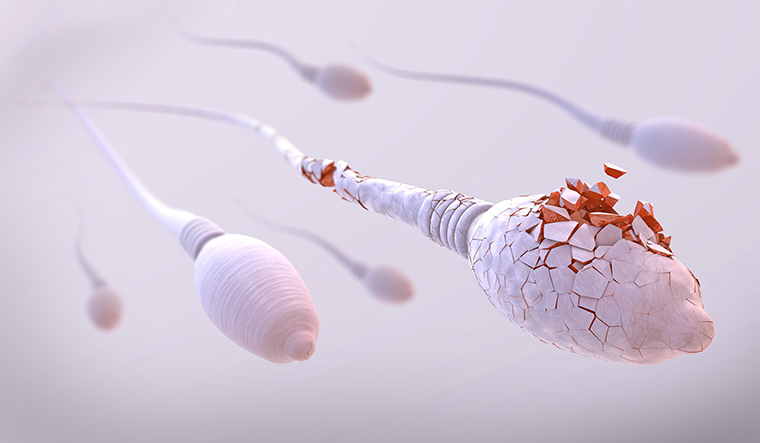Older adults who have a sense of purpose, and think that they are engaged in meaningful activities, tend to be healthier and happier.
The study published in the Proceedings of the National Academy of Sciences was based on 7,304 adults, aged 50 and older.
The participants were rated on a scale of one to ten, on the basis of the extent to which they felt their daily activities were worthwhile. As part of the study, they answered questions about their health and lifestyle, and underwent tests that measured a range of health parameters.
Overall, the more worthwhile people thought their activities were, the better their physical and mental health at the start of the study, and four years later.
As the worthwhile ratings increased, the chances of developing a new disease, depression, chronic pain or a disability dropped.
People who reported lower worthwhile ratings were twice as likely to develop depressive symptoms over the study period and 30 per cent more likely to develop chronic pain.
Depression net
Teenage girls are twice as likely to show depressive symptoms linked to social media use compared to boys, according to a British study published in the EclinicalMedicine.
To examine the link between social media usage and depressive symptoms, the researchers analysed data from 10,904 teens.
Girls were heavier users of social media, with two fifths of them using it for more than three hours per day compared with one fifth of boys. Twelve per cent of light social media users and 38 per cent of heavy social media users (five or more hours a day) showed signs of severe depression.
Three to five hours of social media usage per day increased depression scores by 26 per cent in girls and 21 per cent in boys, compared to those who used it for one to three hours a day. Depression scores rose by 50 per cent in girls and 35 per cent in boys with social media use of over five hours per day.
Greater social media use was related to online harassment, poor sleep, low self-esteem and poor body image, which in turn were linked to higher depressive symptom scores.
Did You Know
Men whose fathers smoked at the time of pregnancy had a 41 per cent lower sperm concentration and 51 per cent lower sperm count compared to men with non-smoking fathers.
PLOS ONE
At the heart of income volatility
Money issues can negatively impact your mental health. According to a study published in the journal Circulation, sudden, unpredictable drops in personal income during young adulthood was associated with an increased risk of developing heart diseases and all-cause mortality.
The researchers followed 3,937 people for 15 years. The participants, who were 23 to 35 years old in 1990 when the study began, provided information about their income at the onset and four more times during the study. Their medical records were analysed for heart events and deaths.
People who experienced the biggest fluctuations in personal income had nearly double the risk of all-cause mortality and more than double the risk for cardiovascular diseases, such as heart attacks, stroke, heart failure, or death, compared to those with more stable incomes.
People who suffered two or more income drops during the study period were 2.5 times more likely to develop heart disease and 92 per cent more likely to die from any cause, compared to those without income drops.
Bypass surgery vs angioplasty
Diabetic patients with multiple-clogged heart arteries who opted for bypass surgery lived longer compared to similar patients who had angioplasty, according to follow-up results from the FREEDOM trial published in the Journal of the American College of Cardiology.
The initial FREEDOM trial results, published in 2012, showed that diabetic patients with multiple blocked arteries had fewer heart attacks and lived longer if they underwent bypass surgery instead of getting a stent, during an average 3.8-year follow-up.
The researchers continued to track patients to evaluate the long- term survival advantage with bypass surgery.
Among 943 patients who were followed for eight years, 24 per cent of the patients who received stents died from all causes compared to 18 per cent of those who had bypass surgery. The greatest benefit was seen in patients under 65.
Patients treated with bypass surgery had a 36 per cent better survival advantage.
Anti-seizure drug to fight depression
An anti-seizure drug could be a new treatment option for patients suffering from depression. Ezogabine (also known as retigabine) significantly reduced depressive symptoms and increased resilience to stress in patients with major depressive disorder (MDD).
Ezogabine is a potassium channel opener and can increase the activity of the area in the brain that controls potassium. Potassium channels in the brain’s reward system mediate the brain's resilience to depression.
Ezogabine was found to have significant antidepressant effects in mice. This suggested that Ezogabine may have an antidepressant affect in humans, too.
The researchers tried the drug in 18 patients with MDD who were not taking any other medication. The participants received up to 900mg of Ezogabine daily over 10 weeks.
Patients experienced a 45 per cent reduction in depressive symptoms, a significant reduction in anhedonia—the inability to feel pleasure—and a significant increase in resilience.
The findings of the study were published in Molecular Psychiatry.
Strike off stroke
Can a healthy lifestyle offset the effect of genetics on stroke risk?
According to a study published in The BMJ, a healthy lifestyle can reduce your risk of stroke even if the deadly disease runs in your family.
Both genetic and environmental factors, including diet and lifestyle, can influence your risk of suffering a stroke.
The researchers looked for 90 gene variants that are known to increase stroke risk in 3,06, 473 men and women, aged 40-73 years, without a history of stroke or heart attack.
Hospital and death records were examined to identify stroke events. Over an average follow-up of seven years, 2,077 fatal or non-fatal strokes were reported.
Overall, the risk of stroke was higher in men than women. Additionally, the risk of stroke was 35 per cent higher among those at high genetic risk compared with those at low genetic risk, irrespective of lifestyle.
At the same time, people who adhered to a healthy lifestyle had a 66 per cent lower risk of stroke than those with an unhealthy lifestyle, regardless of their level of genetic risk for stroke.
People with a high genetic risk combined with an unhealthy lifestyle had more than double the risk for stroke, compared to people with a low genetic risk with a healthy lifestyle.
Did You Know
A review of 56 previous studies that included both kids and adults did not find any substantial health benefits by replacing sugar with artificial sweeteners. The researchers looked at a range of health outcomes including weight, oral health, cancer, heart disease, kidney disease, blood sugar levels, mood and behaviour.
The BMJ
Sperm quality matters
Recurrent miscarriages are often thought to be caused by health issues with the mother. A new study published in the journal Clinical Chemistry suggests that poor quality of a man’s sperm could also be responsible for recurrent miscarriages—defined as the consecutive loss of three of more pregnancies before 20 weeks gestation.
The researchers compared the sperm health of 50 men whose partners suffered multiple miscarriages to that of 60 male volunteers whose partners had not suffered a miscarriage.
The sperm of men whose partners suffered recurrent miscarriages had twice as much DNA damage compared to the healthy group.
The DNA damage was caused by reactive oxygen species, molecules formed within the semen to protect sperm from bacteria and infection. But in high concentrations, these molecules can cause significant damage to sperm cells.
The sperm from men whose partners had suffered miscarriages had a four-fold increase in the amount of reactive oxygen species compared to the control group.
According to the researchers, previous infections, obesity and older age could be contributing to the oxidative damage to the sperms.
Did You Know
Bottle fed infants are more likely to be left-handed, whereas babies who are breast fed for more than six months are more likely to be right handed.
Laterality: Asymmetries of Body, Brain and Cognition
Eat more fibre
According to a study published in The Lancet, eating a diet rich in fibre and whole grains can help lower your risk of heart disease, stroke, diabetes, cancer and other chronic diseases.
The conclusion was based on 185 observational studies and 58 clinical trials that was conducted over the past 40 years.
People who ate more fibre lowered their risk of heart disease, stroke, type 2 diabetes and colon cancer, as well as their risk of dying early from any cause, by 15 per cent to 30 per cent compared with those who ate less fibre.
People who ate more fibre-rich food also had significantly lower body weight, systolic blood pressure and total cholesterol. The optimum amount of fibre that people should consume daily to gain these health benefits is 25 to 29 grams. The health benefits increased with greater consumption. For every additional 8 grams of dietary fibre a person consumes, the risk for each of those illnesses and death dropped by 5 to 27 per cent.
Mediterranean diet, with its emphasis on fruits, vegetables, fish, olive oil, whole grains, legumes and nuts, was picked as the healthiest diet from 41 different popular diets. The Mediterranean diet has been linked to increased longevity and a decreased risk of chronic illnesses.
U.S. News & World Report's annual diet review
Exercise for survival
People who exercise after a heart attack, and before and after a cancer diagnosis, tend to live longer compared to those are inactive, according to two separate studies.
The first study published in the Journal of the American Heart Association included 22,227 patients who were surveyed about their activity levels at six to ten weeks, and ten to twelve months after a heart attack.
During an average follow-up of 4.2 years, 1,087 people died.
Patients who were constantly active post heart attack were 71 per cent less likely to die compared to those who were inactive. Those who increased their activity over time after a heart attack were 59 per cent less likely to die. Even those who reduced their activity levels, but still got at least a little exercise, were 44 per cent less likely to die.
The second study published in the journal Cancer Causes & Control included 5,807 patients with early- to late-stage cancer.
Patients who exercised three to four times a week before and after their diagnosis had a 40 per cent lower risk of death compared with patients who did not exercise.
Even those who exercised only once or twice a week had significantly better survival compared to inactive patients, suggesting that some amount of weekly activity is better than no activity.
Improved survival was also seen in patients who began exercising only after their cancer diagnosis. They cut their risk of death by 25 to 28 per cent compared with those who remained inactive even after the diagnosis.
Infections increase risk
Infections such as pneumonia and urinary tract infections can increase the risk of heart attacks and strokes over the following three months, according to a study published by the Journal of the American Heart Association.
The study used data from 1,312 patients who had a heart attack or other type of coronary event, and 727 patients who had an ischaemic stroke.
Infections substantially increased the odds of having a heart attack or stroke up to 90 days after infections, compared to a year or two earlier, in the same group of patients. The odds of having a heart attack and stroke were increased by 13-fold and six-fold, respectively, in the first two weeks following the infection.
About 37 per cent of the heart disease patients and 30 per cent of stroke patients had some type of infection within the previous three months.
Severe infections increased the risk of stroke and heart attack substantially compared to mild infections.
Hot solution
Hot baths may help reduce inflammation and improve blood sugar (glucose) levels in people who cannot exercise, according to a study published in the Journal of Applied Physiology.
Raising body temperature through exercise can trigger the release of anti-inflammatory substances that can reduce inflammation.
A spike in body temperature can also aid nitric oxide production, a substance that aids blood flow and helps carry glucose throughout the body.
To find out whether these would work as alternatives for people who cannot exercise, researchers studied the impact of hot-water immersion on markers of inflammation, and blood sugar and insulin levels on ten sedentary, overweight men.
The participants sat immersed up to their necks in 39°C water for 60 minutes. Their heart rate, blood pressure and body temperature were measured every 15 minutes. Blood samples were taken before and after the bath.
A single hot-water immersion caused the elevation of IL-6 levels—a marker of inflammation—and increased nitric oxide production.
Two weeks of daily hot-water baths showed a reduction in fasting blood sugar and insulin levels, and inflammation.
CONTRIBUTOR: SHYLA JOVITHA ABRAHAM








